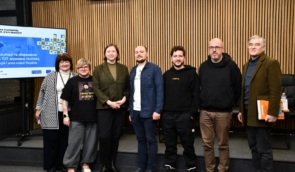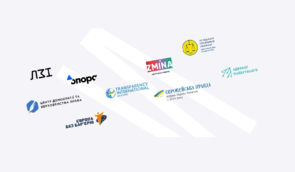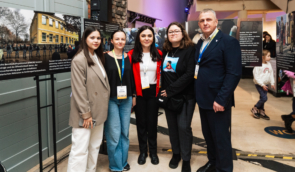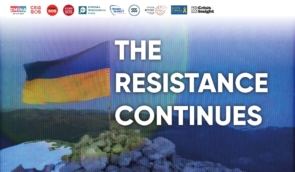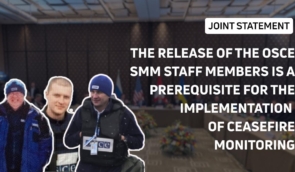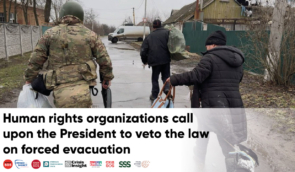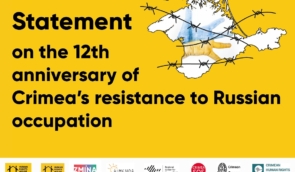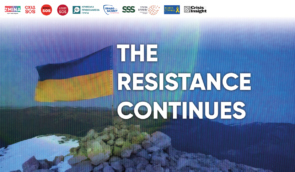ZMINA training: What the Balkans’ EU Integration experience can teach Ukrainian human rights defenders
On 26 September 2025, the Human Rights Centre ZMINA held a training session in Kyiv, “The European integration experience of the Western Balkans and the role of civil society in this process”. The event brought together human rights defenders, civil society activists and experts working in the field of European integration and human rights protection.
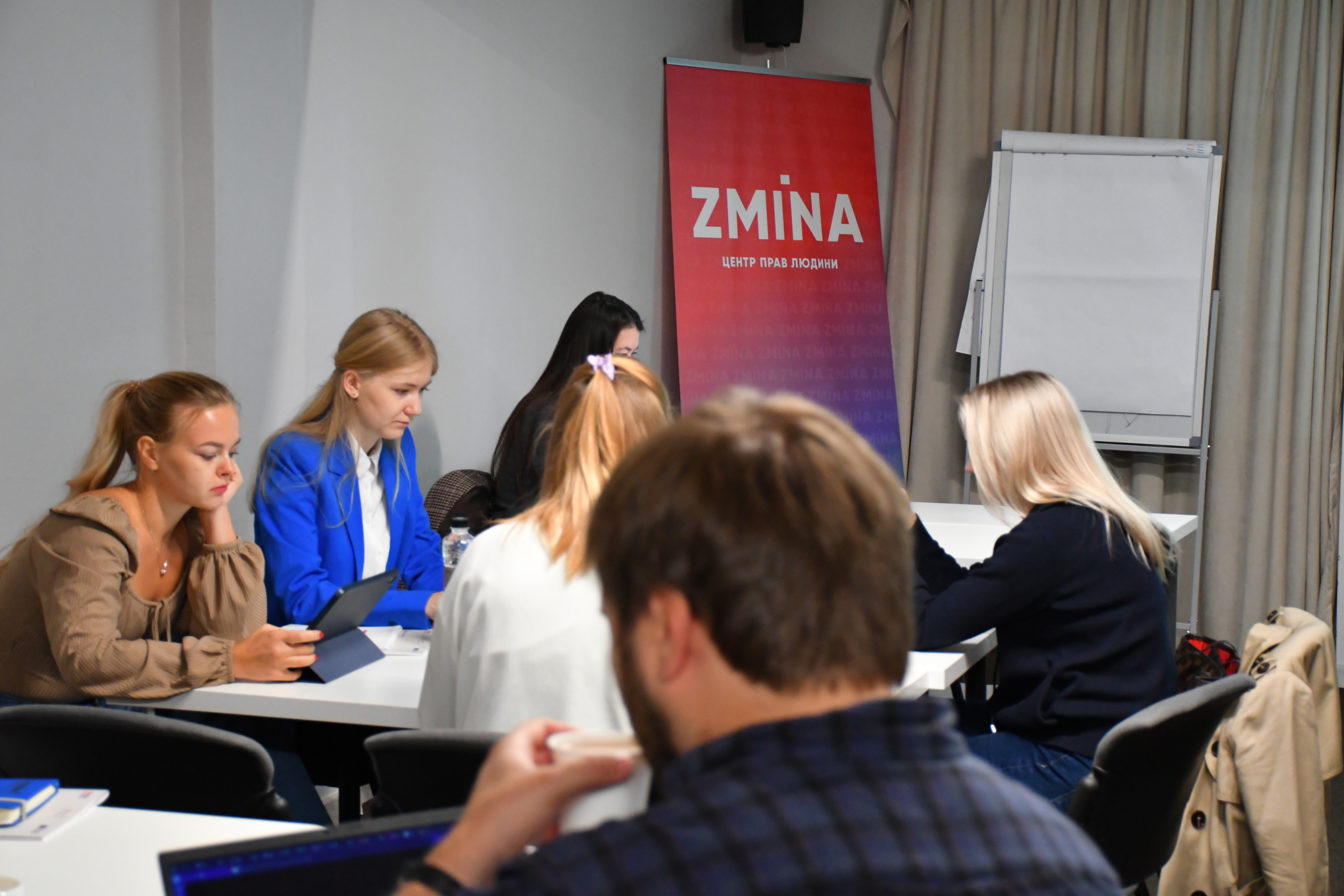
The training aimed to present the experience of the Western Balkan countries — Croatia, Serbia and Montenegro — on their path to the European Union, as well as to discuss key lessons for Ukraine’s European integration course and formulate practical recommendations for advocacy and monitoring of reforms.
Participants learned about the impact of the political context on the process of European integration in the region, the transformation of formal procedures for EU accession, key challenges in the field of human rights, and the role of civil society. Particular attention was paid to lessons for Ukraine and opportunities to use the experience of the Western Balkans in human rights activities.
The training programme was based on ZMINA’s analytical research “European integration experience of the Western Balkans. Lessons for human rights defenders“.
The trainers of the event were:
- Liubov Akulenko, Executive Director of the Ukrainian Centre for European Policy;
- Diana Deputat, Legal Analyst of the Human Rights Centre ZMINA;
- Anastasiia Lykholat, Programme Director of the Human Rights Centre ZMINA;
- Anastasiia Datsiv, Advocacy Manager for European Integration of the Human Rights Centre ZMINA.
Anastasiia Lykholat, Programme Director of the Human Rights Centre ZMINA, opened the training session by emphasising the importance of sharing experiences to strengthen the advocacy capabilities of Ukrainian human rights defenders.
Myroslava Mainina, Public Relations and Inclusion Specialist for the 3E4U Project at GIZ Ukraine, also addressed the participants with an opening speech.
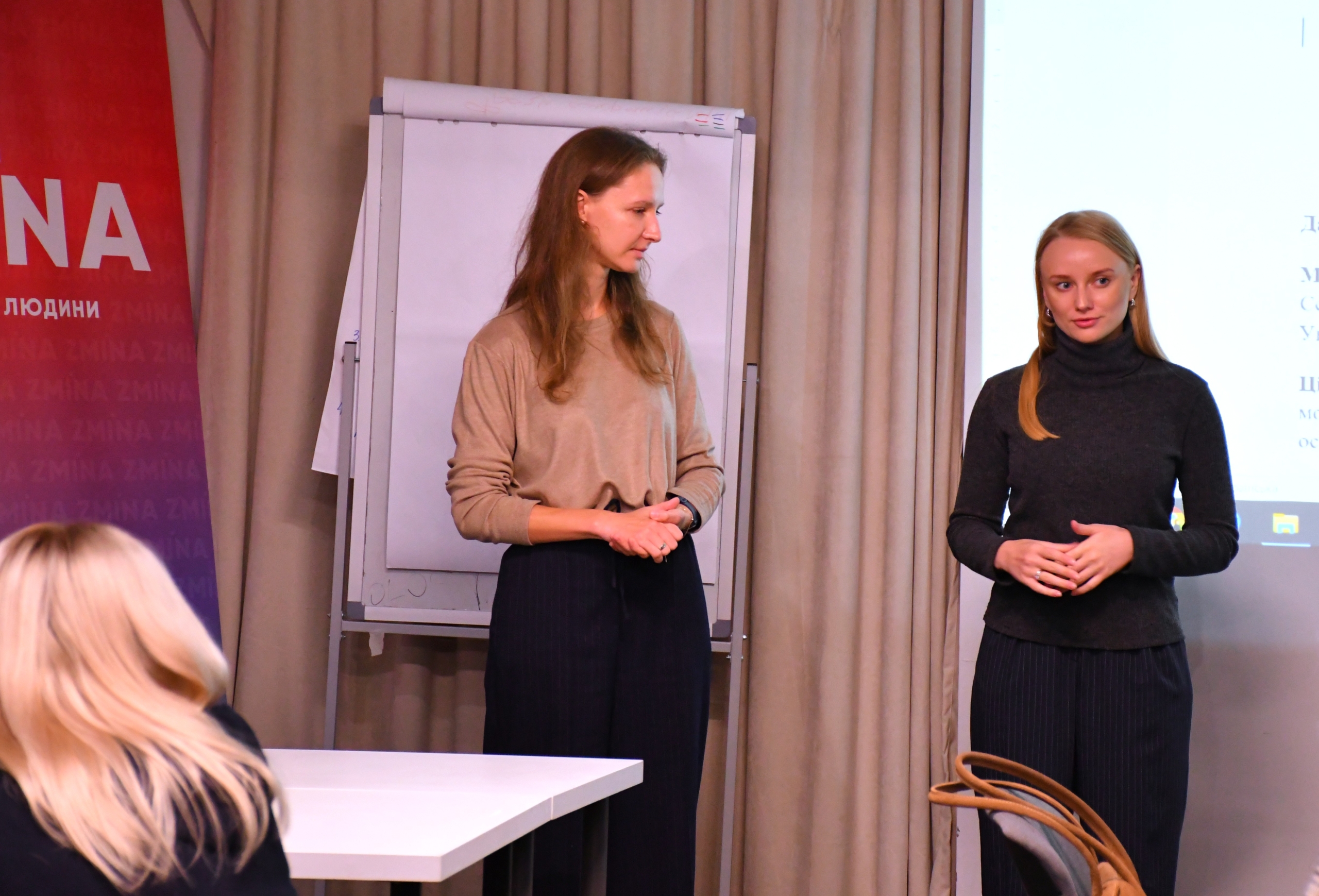 Anastasiia Lykholat, Myroslava Mainina
Anastasiia Lykholat, Myroslava MaininaLiubov Akulenko, Executive Director of the Ukrainian Centre for European Policy, spoke about the European integration path of the Balkan countries and shared her thoughts on the differences with the Ukrainian context.
“In Ukraine, the risk lies in possible resistance to European integration from industry and farmers. After all, EU requirements — from environmental standards to technical ones, such as the return of vehicle inspections — could cause serious discontent. The worst-case scenario would be the emergence of a powerful group that would oppose Ukraine’s accession to the EU,” the expert believes.
Diana Deputat, Legal Analyst of the Human Rights Centre ZMINA, spoke about key issues in the field of human rights protection in the context of the European integration experience of Croatia, Serbia and Montenegro. She revealed the peculiarities of each country’s path to European integration and gave examples of how they overcame the most pressing challenges for Ukraine related to human rights protection. The latter includes, in particular, the functioning of the Ombudsman institution, the protection of the rights of LGBTQ+ people and national minorities, freedom of speech and the work of the media.
According to her, the EU sets specific criteria for candidate countries, covering almost all areas of life: from the judicial system and the fight against corruption to gender equality and the protection of the rights of national minorities. The analyst stressed that reforms should not be a formal “ticking off of criteria” but long-term changes that take into account national characteristics.
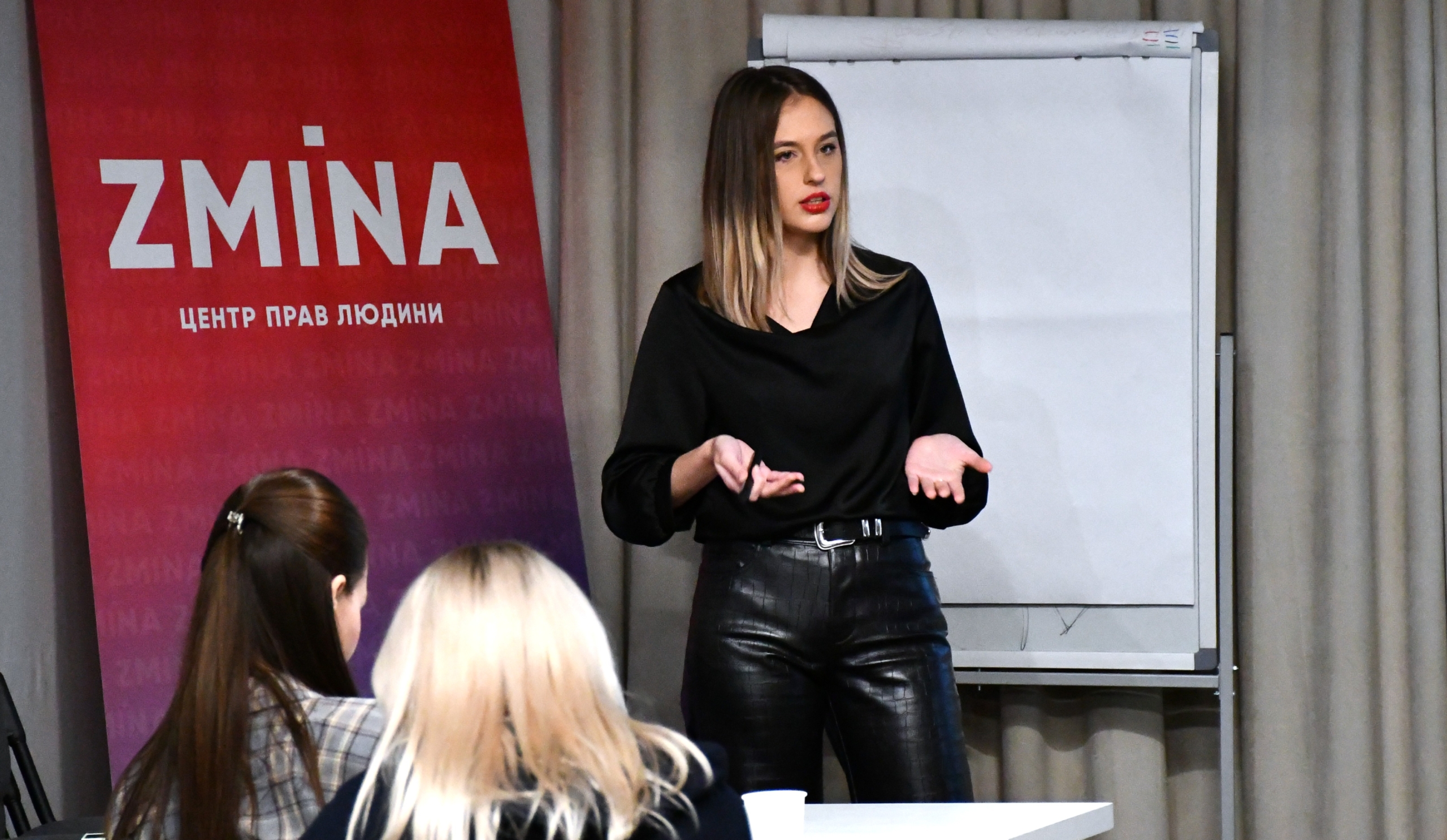 Diana Deputat
Diana DeputatAnastasiia Datsiv, Advocacy Manager of ZMINA, and Anastasiia Lykholat, Programme Director of ZMINA, discussed in detail the important role of civil society in European integration processes. discussing models of NGO participation — both as independent watchdog organisations and in the format of inclusion in working groups and the development of policy recommendations.
The training concluded with a practical session on mapping participants in consultations with the government during the European integration process, discussing the advantages and disadvantages of involving a large number of diverse participants, as well as how civil society representatives can identify their role and balance in this process.
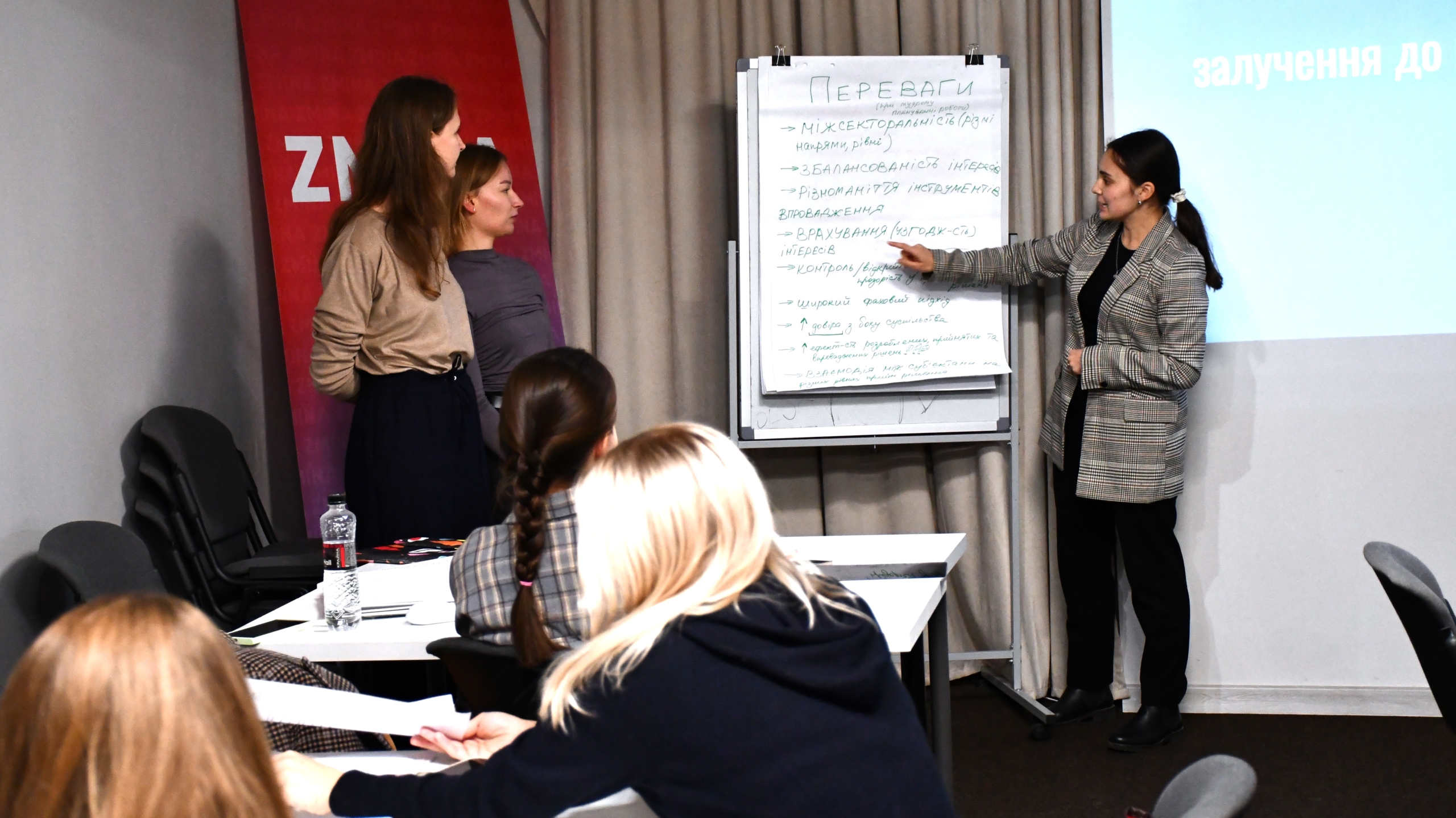
Following the event, the participants received certificates confirming their completion of the training.
The training was organised by the Human Rights Centre ZMINA with the support of the project “Strengthening the Ukrainian EU Adjustment Process in the Area of the Rule of Law” (3*E4U), implemented on behalf of the German Federal Foreign Office by Deutsche Gesellschaft für International Zusammenarbeit (GIZ) GmbH as part of the project “Human Rights at the Centre of Ukraine’s European Integration”, which is being implemented by the NGO Information Center for Human Rights with the support of GIZ.
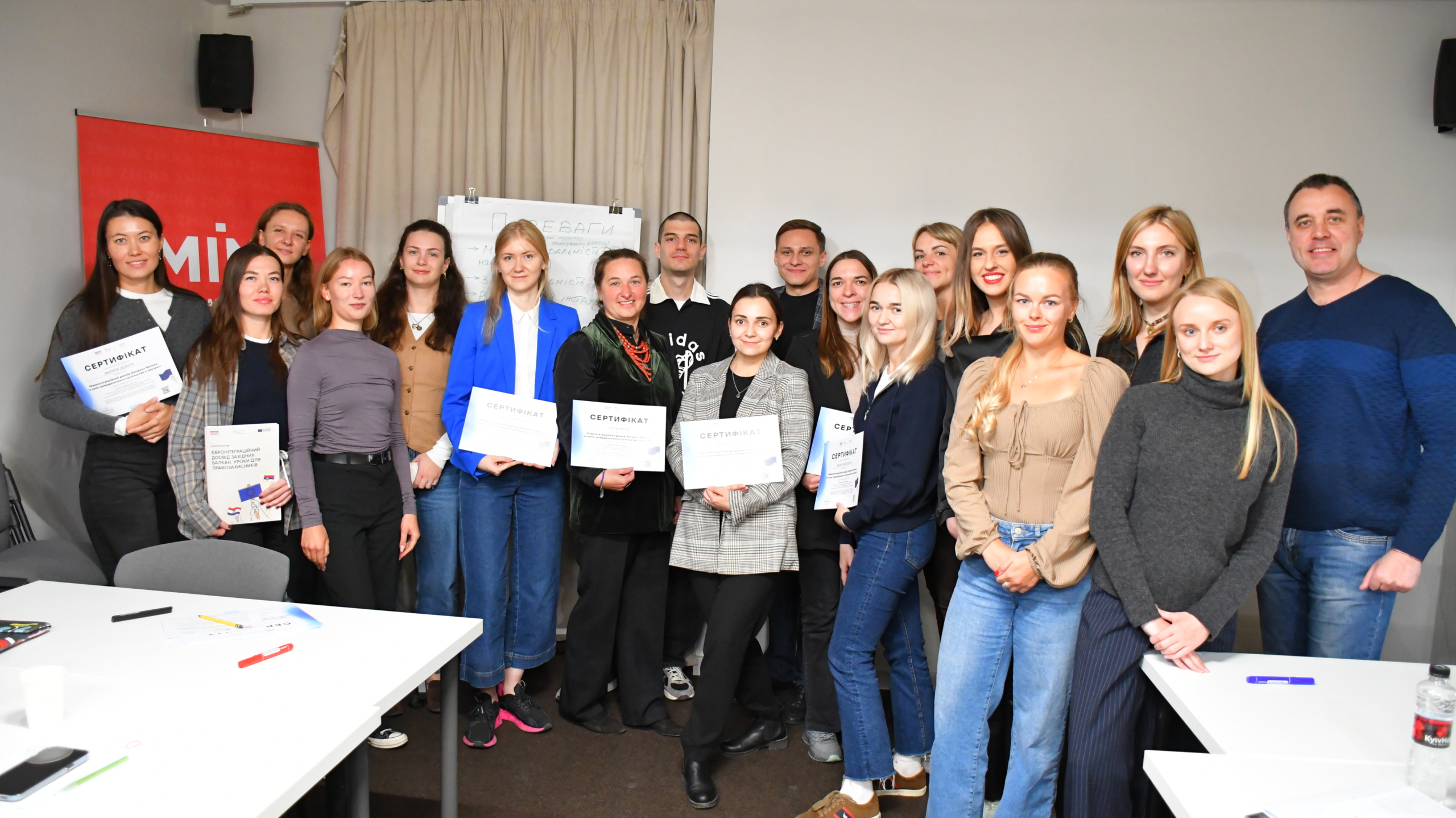
If you have found a spelling error, please, notify us by selecting that text and pressing Ctrl+Enter.

